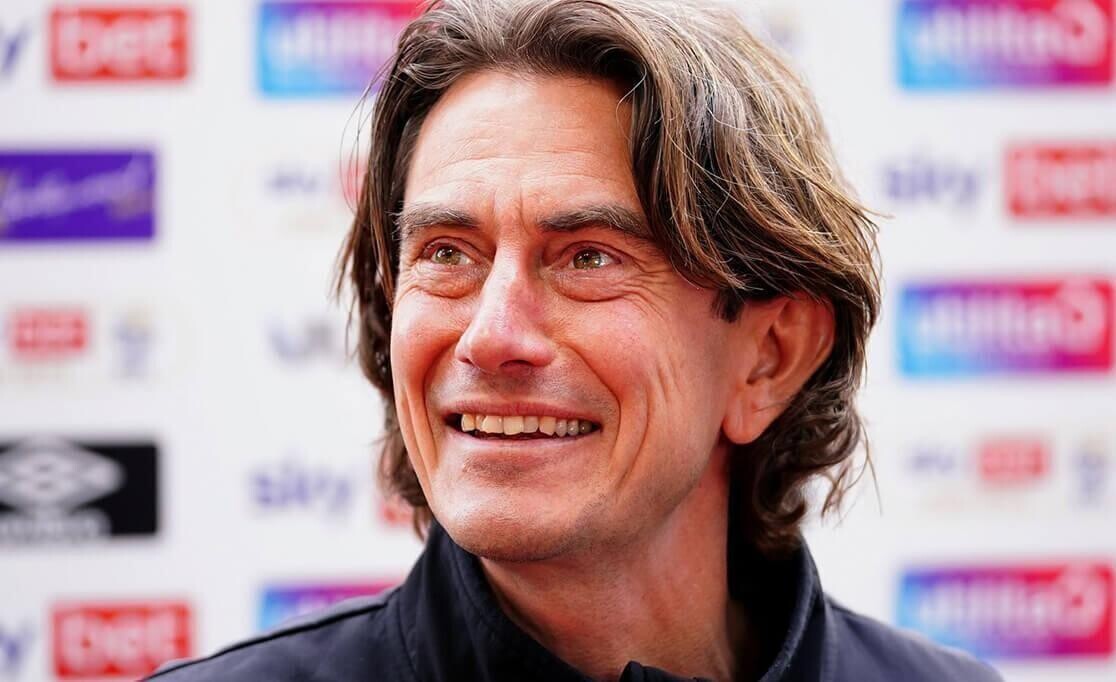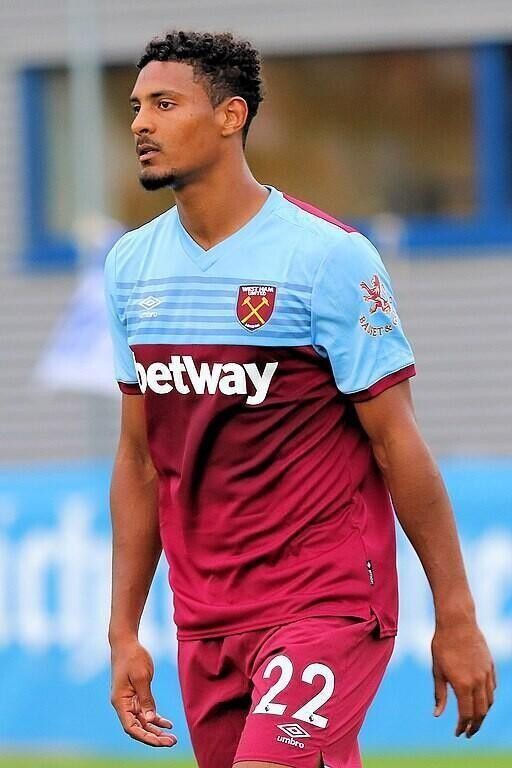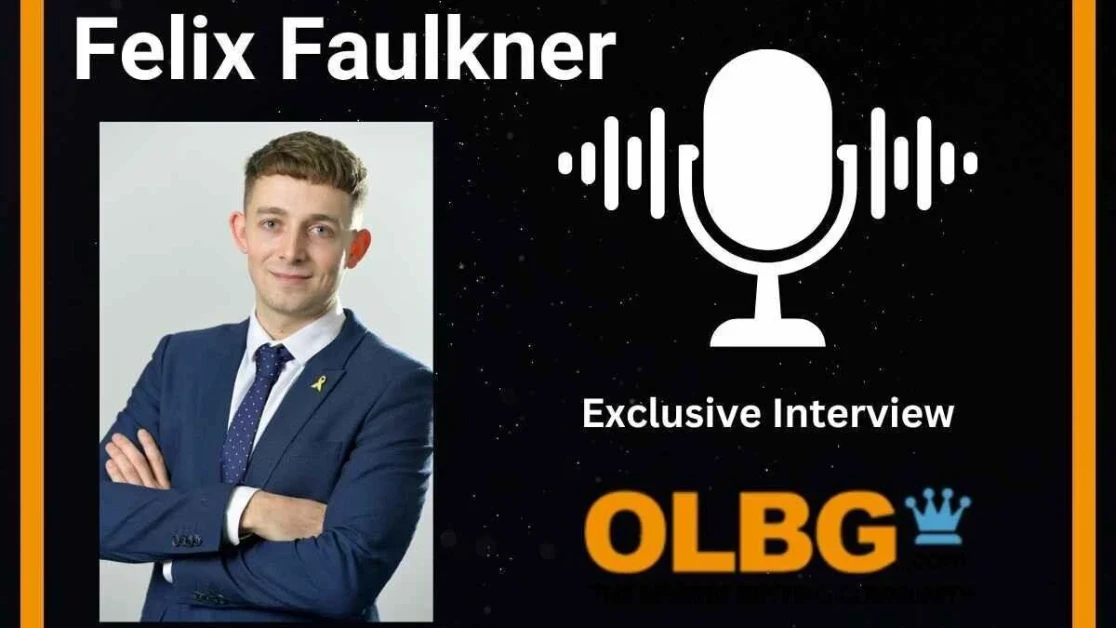
I've spent over 20 years inside the betting industry. I'll guide you to avoid the hype, ignore the noise, and steer clear of the common pitfalls that catch out everyday punters.
Are football and gambling too closely linked?
The relationship between football and gambling has come under increasing scrutiny in recent years. We’ve already seen a voluntary announcement from the Premier League that front-of-shirt sponsorships will be banned from the 2026/2027 season and the recently released White Paper on Gambling Act reform suggested more marketing curbs could be on the cards.
There’s also the eight-month football ban of Brentford striker Ivan Toney for placing bets on football, which led team manager Thomas Frank to declare, “football and gambling’s relationship needs a review”.
We sat down with Felix Faulkner, a gambling solicitor and regular media commentator on gambling advertising, to get his views on the future of that relationship.
OLBG: Do you think football fans will see any material changes in the way betting is marketed to them in the near future?
Felix Faulkner: I expect that in the coming years gambling advertising in football is likely to be reduced. I’m not sure this will necessarily be as a result of more regulation, but rather lobbying by other stakeholders. There is clear pressure from the footballing sphere, especially from pundits and the media.
Gambling Solicitor Felix Faulkner Predicts Reduction in Football Gambling Advertising
The Ivan Toney case, in particular, has led to questions being asked, especially as he was revealed in the national press to have been diagnosed with a gambling problem. He is one of the most high-profile players we’ve seen to be subject to such a lengthy ban.
OLBG: Some people have said his punishment was overly harsh. What are your views on that?
FF: The Football Association (FA) has its own processes and the exact details of the matter are unclear so I wouldn’t be able to say with any certainty whether it was reasonable or not. We do know he breached the code 232 times, and that at times he bet against his own team. His original sentence was reduced from 11 months to eight due to his gambling addiction, and he is not allowed to train with the club for four months.
But on the other hand, Port Vale has just signed Mitch Clark, who breached the same code by placing 312 bets (including bets against teams he played for at the time), yet he was given only a suspended sentence.
So, on the face of it, it seems possible the FA has used Toney as an example. He’s much higher profile than Clark as he was called up to play for England last year. Maybe his suspension was intended to send a clear message that the FA is not going to stand for this type of behaviour. It will be interesting to see how the FA’s recently announced probe into Nottingham Forest defender Harry Toffolo plays out given his international career at youth level and with him being a current Premier League player. Toffolo has been charged with breaching the betting rules 375 times between 2014 and 2017.
Thomas Frank Comments on Ivan Toney's Ban and Sponsorship Controversy
Brentford manager Thomas Frank has protested Toney’s penalty as being too harsh and said he needs support with his addiction. But while as manager he’s argued that the link between football and gambling needs to be reviewed, as a club Brentford has recently decided to stick with its current sponsor, Hollywoodbets. There’s no way to directly attribute Toney’s betting addiction to the sponsorship, but clearly fans are likely to put two and two together and think it may have been a contributing factor.
Having a player who has been banned for breaching betting rules and who has publicly stated he has a gambling problem walk back onto the field wearing a betting-sponsored shirt is going to be quite incompatible from a football fan’s point of view.

OLBG: Do you expect fans to increasingly put pressure on clubs to stop accepting gambling sponsorships?
FF: We saw clear evidence that fans have a voice a few years ago when the idea of a European Super League emerged. Football fans, myself included, went into absolute meltdown and turned up at stadiums during Covid-19 to protest. The whole idea was abandoned pretty rapidly so this showed the power fans have. However, I don’t think there is enough strength of feeling within the game to protest in such a way about gambling advertisements.
On a personal level, I am not much of a bettor. I might have a flutter on the Grand National or Cheltenham, but betting on football matches is not really something I do regularly.
Gambling ads don't affect my enjoyment of football, and many fans feel the same. More pressure from vocal advocates needed to drive change.
I appreciate that there is probably a disproportionate number of gambling companies that are advertising comparative to other companies. But for me, gambling advertising doesn’t impact my enjoyment of watching the game or my experience, it is just part and parcel of football.
I think a lot of fans probably feel that way, so I think it would take significantly more pressure from people with louder voices who feel more strongly about the topic.
OLBG: Such as?
FF: Pundits like Jamie Carragher and Gary Neville are very vocal on a lot of topics. Footballers themselves get a lot more involved in politics now, especially people like Marcus Rashford and Jordan Henderson, and they have a lot more sway in what happens than they did in the past.

If you look at what happened during Covid-19, we had the Black Lives Matter movement and teams started to take the knee; that started in football and then filtered out to other sports. While players haven’t really gotten involved in gambling sponsorship yet, they are the biggest assets of the Premier League so if they do get involved, the FA could be forced to make bigger moves than it has.
The Ivan Toney issue could have been a turning point, although the gambling companies seem to have ridden out the storm there. If there is another football player at a higher level than Toney who comes out with a betting problem, I wouldn’t be surprised to see more drastic change.
OLBG: What sort of change?
FF: Much has been made of the FA putting in place a voluntary ban on gambling front-of-shirt sponsorships in the Premier League, but the agreement is only for the front. As we all know, football team shirts are becoming a bit like Formula 1 cars in that there is more than just one sponsor these days. They have a sponsor on each sleeve, they have a sponsor on the back of the shirt, they have a training sponsor, there are sponsors outside the pitch, there are sponsors for each individual player and so on. When I was a child, I once sponsored a footballer’s shin pad for a season!
The Complexity of Football Shirt Sponsorships: Beyond the Front of the Jersey
And let’s not forget that the majority of the leagues are sponsored by Sky Bet. If a club were to refuse to be sponsored by a betting company but then had Sky Bet on its sleeve because of the league it plays in, its ethical stand might seem a little toothless.
OLBG: Do you expect more individual clubs to take an ethical stand against gambling in future?
FF: I can definitely see there is pressure building on clubs and I wouldn’t be surprised if some make the decision not to accept gambling companies as sponsors. The FA could also make the decision to go further in this regard. It’s debatable whether the front-of-shirt ban is just paying lip service by trying to appease people by doing one thing when really every club is just going to end up having a gambling sponsor on their shirt sleeve instead.
The Pressure on Football Clubs to Reject Gambling Sponsors
Forgoing gambling sponsors altogether would be a big commercial decision because there is a lot more money in football than there used to be.
The fact is that gambling companies are offering more money than anyone else to sponsor the game. We’ve seen other types of companies enter the area – most recently crypto firms and NFT companies – but while over the past 20 years different types of companies have come and gone, over that period the predominant backers of the game have been gambling companies.

OLBG: If football turned away from gambling companies, would this end gambling advertising in sport altogether?
FF: I think it’s unlikely. The link between gambling and sport is very strong and companies will look for other ways to utilise it, either via different methods of advertising or moves into other sports. We’ve already seen examples of this happening, for example, with Paddy Power just recently being named the sponsor of the PDC World Darts Championship.
Companies’ marketing teams are very creative and will use any opportunity they can to get their brands in front of sports fans; we’ve seen some of this creativity in action since rules prohibiting gambling marketing with ‘strong appeal’ to children were introduced by the Committee for Advertising Practice (CAP) last year.
These rules have severely restricted gambling companies’ ability to use popular sports personalities such as Premier League players in their advertising due to their appeal to under-18s. Marketing using sports stars now has to be clearly in the adult domain, based on not just a celebrity’s sports career, but also their social media profile and other media activity.
This hasn’t necessarily stopped them doing so, and a couple of operators have been pulled up by the Advertising Standards Authority (ASA) for being in breach of these rules. Others have managed to continue using football personalities by making sure they stick closely to the new requirements.
In February the ASA ruled in Paddy Power’s favour over a complaint it broke these rules with a Christmas advert featuring Peter Crouch. The bookie argued he wasn’t of strong appeal to young people and backed this argument up. Its evidence included his social media accounts having a limited youth following, the fact he’d long retired from top-flight football and his other media work being adult in nature.
The Resilience of Gambling Advertising in Sport
It also pointed out it had gone to great lengths to make the ad itself very adult; although it was related to Christmas, it didn’t feature aspects that would particularly appeal to children.
And while there is a whistle-to-whistle ban on advertising during games, we’ve also seen cases where gambling companies have had ads placed during the highlights shows on YouTube. These highlights are released after the game has ended and the final whistle has blown, so would seem to be outside the ban.
These examples suggest that gambling companies see the value of advertising during sport as being incredibly high, which is perhaps unsurprising given the entire sports betting product is based on sport.
OLBG: Some would argue bookies are exploiting loopholes with what you’ve just described. What’s your view on this?
FF: If there is an opportunity that has not been blocked by laws or regulations and there’s a way to make money out of it, it stands to reason companies are going to do it. I wouldn’t describe it as taking advantage of loopholes, but merely operating within the parameters of legislation.
Operating Within Legal Boundaries: Felix Faulkner on Bookies and Advertising
It’s worth pointing out that the CAP rules I mentioned earlier are aimed at protecting children. They aren’t aimed at stopping companies from advertising. So, if Paddy Power has demonstrated that using Peter Crouch doesn’t put children at any risk, it isn’t exploiting a ‘loophole’ but rather just acting in line with the rules.
OLBG: Is there any chance gambling advertising could be completely banned in football or sport more generally?
FF: I am not sure whether either the Gambling Commission or the government has the appetite to ban gambling advertising in sport entirely.
The Potential for a Complete Ban: Gambling Advertising in Sport
I am also not sure if sporting associations would opt for an outright ban; it would be a drastic move. Then again, we’ve seen it before with cigarettes and with alcohol. You can’t advertise alcohol on football shirts anymore and you can’t name a football ground after an alcoholic beverage. There were some classic football sponsorships related to alcohol in the past: Newcastle used to be sponsored by Newcastle Brown Ale and Liverpool was sponsored by Carlsberg for a very long time, so there is precedent in place but those type of deals were shut down many years ago.
OLBG: Some people would say it would be good if the same happened with gambling advertising. What’s your take on that?
FF: There are undoubtedly people who suffer from gambling problems or have the potential to, and these people may benefit from a ban on gambling advertising. But for the majority of gamblers who don’t have issues, it would likely kill competition. How would a company like Hollywoodbets, which is the sponsor of Brentford, be able to expand from South Africa to the UK if it wasn’t allowed to advertise within the sports market it operates in? Companies like William Hill, Paddy Power, Bet365 and Betfair are already known in the industry. They don’t necessarily need to advertise much because people already know who they are.
A ban on gambling ads could help those with gambling issues, but it may harm competition, preventing newer firms like Hollywoodbets from expanding into markets dominated by established brands.
But if advertising wasn’t available to new companies, how could the market be competitive? A full advertising ban would create a monopoly in the industry and would not allow companies the ability to be innovative and come up with new ideas. In the end, this would probably filter down to less choice and worse pricing and ultimately damage the overall experience for bettors.
Felix Faulkner is a solicitor at leading gambling law firm Poppleston Allen. He is a regular media commentator on gambling advertising, with his views having recently been published in leading industry publications EGR, iGB, Gambling Insider and SBC News.



